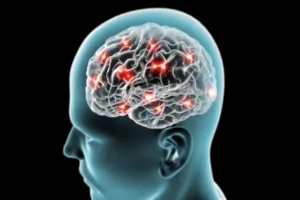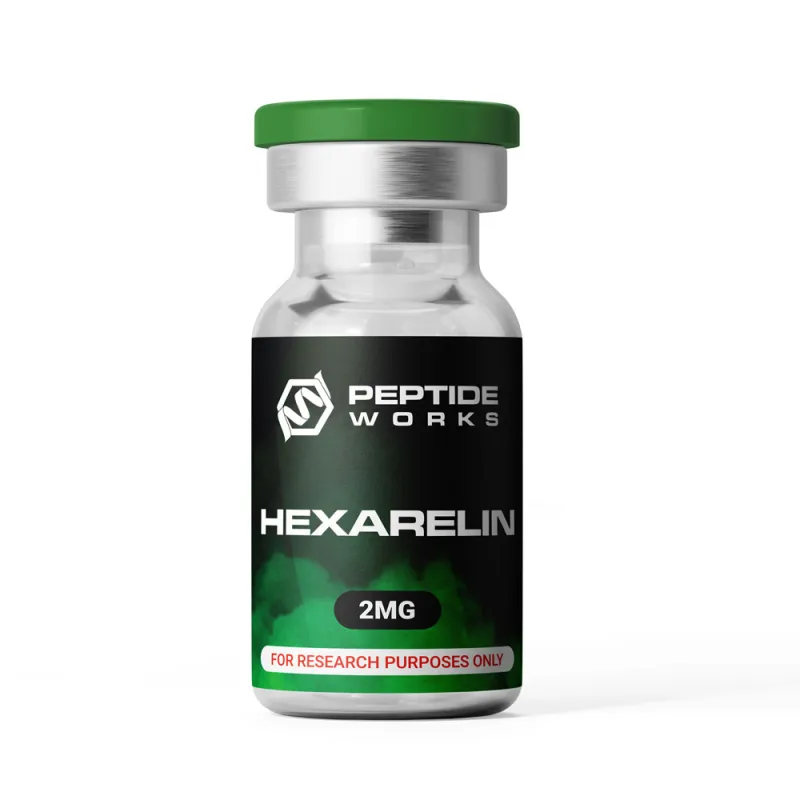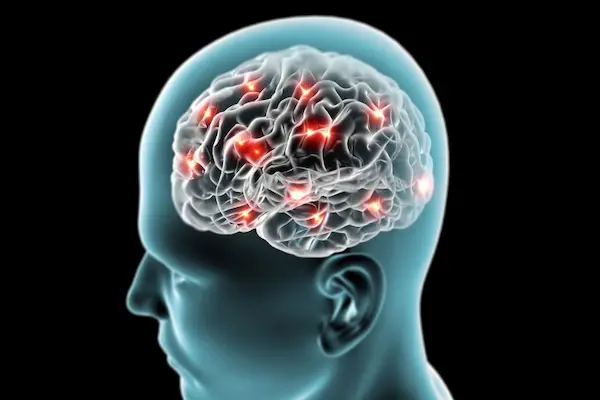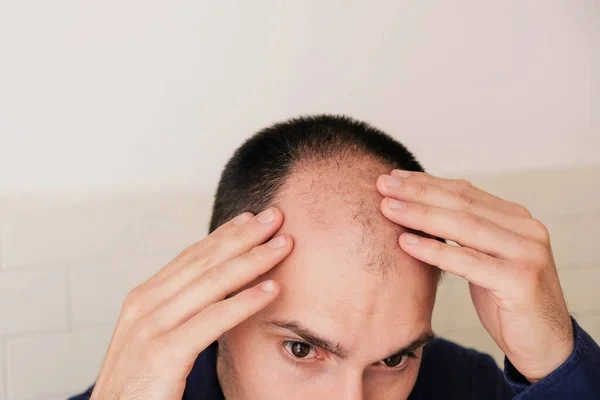
PROMO!
First order? Get 10% OFF with this code: 1storder
Written by

GHRP-2 peptide research has gained significant attention in scientific studies examining growth hormone secretion pathways. This synthetic hexapeptide stimulates the release of growth hormone by activating the pituitary gland.
Research demonstrates GHRP-2 mimics ghrelin, the endogenous ligand for the growth hormone secretagogue receptor, influencing appetite regulation and, metabolism.
At Peptide Works, we supply GHRP-2 peptide to research teams worldwide, supporting in vivo scientific investigations into growth factors and growth hormone-releasing peptides.
Research findings suggest these compounds may influence various physiological functions, including potential effects on libido mechanisms and body composition.
All peptides described in this article are for research purposes only and not for human use. Researchers should verify the legal status of such compounds before performing in vivo testing or advanced experimental protocols.
To understand how GHRP-2 might affect sexual function, we must first examine the biological mechanisms behind its action.
Explore GHRP-2 Peptide from Peptide Works, a valuable tool studied for its role in GH release and prolactin modulation within neuroendocrinology research.

GHRP-2 peptide binds to GHS-R1a receptors in the pituitary gland and hypothalamus. Research shows this synthetic hexapeptide activates protein kinase C (PKC) pathways involved in GH secretion.
This differs from GHRH, which uses cAMP signaling mechanisms. GHRP-2 increases intracellular calcium concentrations in somatotroph cells. Studies demonstrate that receptor activation triggers rapid increases in plasma GH levels, consistent with pulsatile hormone activity.
The peptide mimics ghrelin’s natural hormonal signaling without requiring GHRH receptors. These complex interactions form the foundation for understanding potential libido effects.
Once growth hormone release occurs, it sets off a cascade of additional hormonal changes throughout the body.
GHRP-2 peptide triggers multiple downstream hormones beyond initial growth hormone release. Research shows IGF-1 levels increase significantly through liver stimulation after GH activation.
Studies demonstrate GHRP-2 elevates aldosterone and creates hormonal cascades in test subjects. IGF-1 becomes the primary anabolic hormone responsible for muscle growth and tissue repair.
Growth hormone elevation affects multiple endocrine pathways simultaneously in research protocols. These hormonal changes create the biochemical foundation that scientists examine for potential physiological effects.
The specific hormones affected by GHRP-2 each play distinct roles in sexual health and function.
IGF-1 elevation through GHRP-2 peptide research shows direct connections to sexual health pathways. Research demonstrates increased IGF-1 levels support testosterone production and nitric oxide synthesis.
IGF-1 promotes blood vessel health crucial for sexual function in research models. Growth hormone itself enhances protein synthesis in reproductive tissues.
These anabolic pathways create positive effects on sexual health infrastructure. Scientists examine how these beneficial hormonal changes interact with other peptide effects.
Moving beyond theoretical mechanisms, actual documented effects provide clearer insights into GHRP-2’s impact on sexual function.
Studies demonstrate ghrelin mimics like GHRP-6 delay sexual motivation in male rats. Research found increased mount latencies and delayed ejaculation with ghrelin administration.
Some hexarelin analogs actually improve erectile function through nitric oxide pathways. GHRP-2 shows different sexual function profiles compared to other peptides in this family.
Individual peptide structures create varying effects on reproductive behavior in research models. These documented differences help scientists understand peptide-specific sexual function impacts.
Among these various effects, prolactin elevation appears to be the most significant factor influencing sexual function.

GHRP-2 peptide increases prolactin levels through direct pituitary stimulation in research studies. Elevated prolactin suppresses dopamine activity in brain areas controlling sexual desire.
Research shows high prolactin reduces testosterone production and blocks sexual motivation pathways. Studies demonstrate prolactin elevation causes erectile dysfunction and decreased libido in subjects.
This hormonal mechanism represents the primary pathway linking GHRP-2 to potential sexual dysfunction. Prolactin’s suppressive effects on reproductive hormones create the strongest evidence for libido concerns.
GHRP-2 also elevates cortisol levels which further compounds these negative sexual effects. These contradictory mechanisms reveal why different GHRP peptides produce varying sexual health outcomes.

Different GHRP peptides affect sexual function through distinct receptor activation patterns. Research shows GHRP-6 has stronger sexual suppression effects than GHRP-2 due to ghrelin mimicking.
Studies demonstrate hexarelin analogs can improve blood flow through nitric oxide pathways. Peptide structure variations create different binding affinities and downstream effects.
Some peptides favor prolactin elevation while others enhance nitric oxide production. Individual receptor sensitivity determines which pathway dominates in different research subjects.
These structural differences explain mixed sexual function results across the peptide family. The nitric oxide pathway represents one of the most important factors in this complex equation.
Discover GHRP-6 Peptide from Peptide Works, researched for its ghrelin-mimetic effects and influence on appetite and sexual motivation pathways
Growth hormone elevation from GHRP peptides can enhance nitric oxide synthesis pathways. Studies show growth hormone promotes endothelial nitric oxide synthase activity in penile tissue.
Nitric oxide acts as the primary mediator for erectile function and blood flow. Some hexarelin analogs directly activate nitric oxide pathway mechanisms. IGF-1 increases from GHRP peptides support nitric oxide production in vascular tissue.
Research demonstrates growth hormone improves endothelial function in blood vessels. These vascular benefits represent the positive sexual health effects from GHRP peptides.
Looking ahead, continued scientific investigation will help clarify these complex interactions.
Explore Hexarelin Peptide from Peptide Works, a synthetic peptide investigated for its cardiovascular benefits and nitric oxide pathway activation.
Future studies will continue exploring GHRP-2 peptide effects on sexual function mechanisms. Scientists focus on understanding prolactin elevation and individual response variations in test subjects.
New peptides like kisspeptin show promise for treating sexual dysfunction through different pathways. Teams examine how growth hormone peptides create competing hormonal effects on libido.
Studies may develop peptide combinations that minimize prolactin increases while maintaining benefits. Peptide Works supplies these compounds to scientists studying sexual function worldwide.
Advanced protocols will help explain why GHRP peptides show mixed sexual effects.
All products discussed are supplied for research purposes only and are not intended for human use.
[1] Veldhuis JD, Bowers CY. Factors other than sex steroids modulate GHRH and GHRP-2 efficacies in men: evaluation using a GnRH agonist/testosterone clamp. J Clin Endocrinol Metab. 2009 Jul;94(7):2544-50.
[2] Veldhuis JD, Keenan DM, Bailey JN, Miles JM, et al. Preservation of GHRH and GH-releasing peptide-2 efficacy in young men with experimentally induced hypogonadism. Eur J Endocrinol. 2009 Aug;161(2):293-300.
[3] Cappelletti M, Wallen K. Increasing women’s sexual desire: The comparative effectiveness of estrogens and androgens. Horm Behav. 2016 Feb;78:178-93.
[4] Babaei-Balderlou F, Khazali H. Effects of Ghrelin on Sexual Behavior and Luteinizing Hormone Beta-subunit Gene Expression in Male Rats. J Reprod Infertil. 2016 Apr-Jun;17(2):88-96.
ALL CONTENT AND PRODUCT INFORMATION AVAILABLE ON THIS WEBSITE IS FOR EDUCATIONAL PURPOSES ONLY.
DISCLAIMER: These products are intended solely as a research chemical only. This classification allows for their use only for research development and laboratory studies. The information available on our Peptide Works website: https://peptide-works.com/ is provided for educational purposes only. These products are not for human or animal use or consumption in any manner. Handling of these products should be limited to suitably qualified professionals. They are not to be classified as a drug, food, cosmetic, or medicinal product and must not be mislabelled or used as such.
Peptide Works
Related Articles

What are the Best Cognitive Peptides?
Cognitive peptides are short chains of amino acids that researchers are exploring for their potential effects on brain function. They

Achieving increased skin pigmentation without prolonged sun exposure has been demonstrated with Melanotan peptides in research. Two commonly studied options,

Can PTD-DBM Hair Growth Peptide Stop Balding?
Hair thinning and balding affect millions worldwide, often leading to frustration and limited options. This challenge has driven researchers to